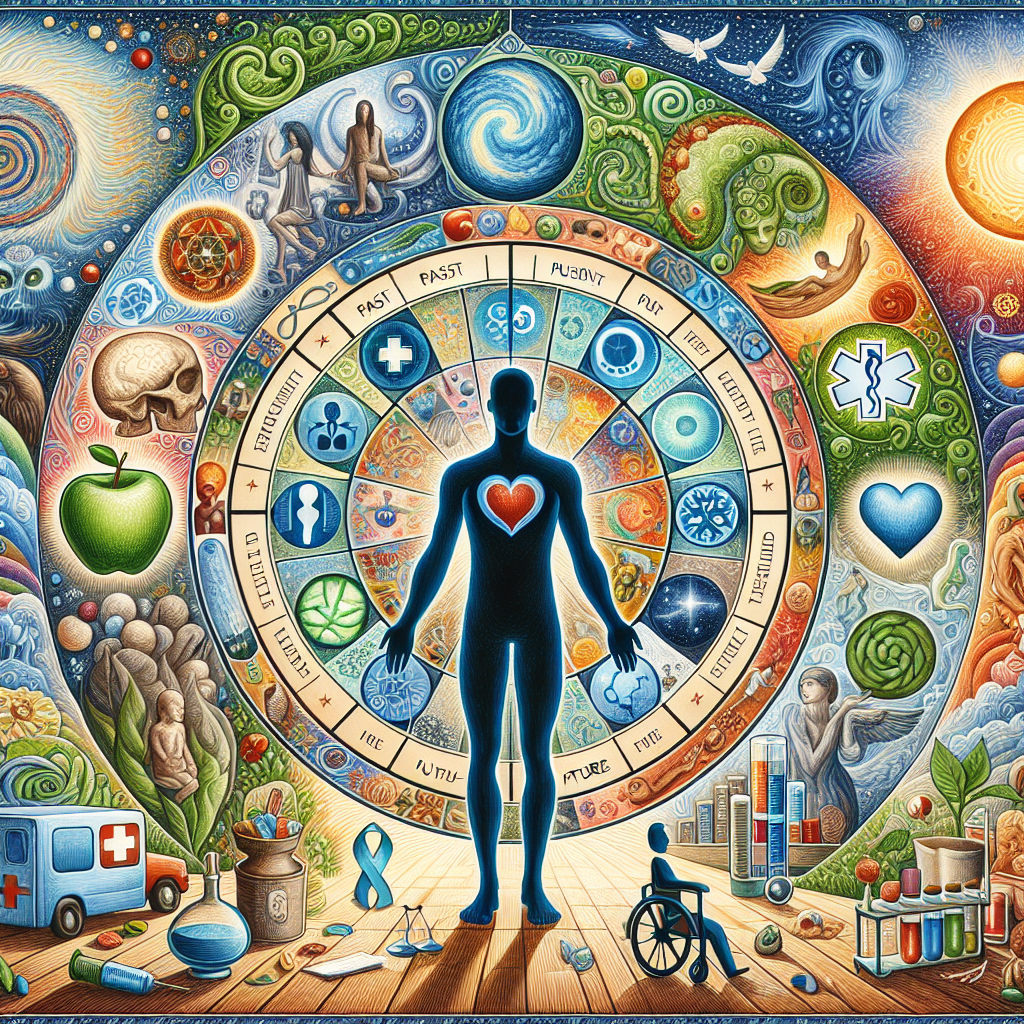Karma, derived from the Sanskrit word "karman," meaning "action," encompasses the idea that each action has consequences, not only in this life but also beyond. Often associated with spiritual beliefs and philosophies, such as Buddhism and Hinduism, karma suggests that our past actions, decisions, and intentions can significantly influence our present experiences, relationships, and even our health.
In recent years, the connection between karma and health has garnered increasing attention, with health professionals and researchers exploring how unresolved trauma, emotional baggage, and life patterns shaped by past actions can manifest physically in our bodies. This exploration embodies a broader understanding of health that transcends the physical realm, drawing connections between emotional, mental, and spiritual well-being.
The Concept of Karma in Health
While karma is often thought of in a moral context—rewarding good deeds and punishing bad behavior—its implications extend to our overall well-being. Psychological studies have shown that unresolved trauma and emotional distress can lead to various health issues, including chronic pain, cardiovascular diseases, and autoimmune disorders. The impact of stress on physical health is well-documented, and many practitioners of holistic medicine assert that the root of physical ailments can often be traced back to emotional and psychological scars.
When considering karma in this context, we can see how past behavior—our own or that of others—shapes our well-being. If an individual harbors guilt or resentment, these negative emotions can translate into physical symptoms. For example, the notion of "carrying the weight of the world on your shoulders" can manifest in tension and pain in the neck and shoulders.
The Ripple Effect of Actions
Every action we take has a ripple effect that influences not only our lives but also the lives of those around us. For instance, offering kindness can enhance not only the recipient’s well-being but also our own, leading to improved mental and emotional health. Conversely, negative actions can lead to feelings of regret, guilt, or shame, which can foster chronic stress and negatively impact our health.
Research shows that social connections significantly influence health outcomes. Acts of kindness and compassion promote feelings of connection and support, which can decrease stress and lead to improved health. These actions create positive karma, contributing to a cycle of well-being. Conversely, engaging in hurtful actions can create a cycle of negativity that affects both the individual and their relationships, leading to further isolation and health issues.
Patterns of Behavior and Health Outcomes
The patterns of behavior established through our past experiences can significantly impact our health. For example, individuals who have experienced trauma may develop coping mechanisms—such as substance abuse or avoidance—that ultimately lead to physical health problems. In such cases, the healing path often requires individuals to confront their past, understand the roots of their behavior, and actively work to change those patterns.
A clear example of this can be seen in the context of emotional eating. Often, individuals who have faced emotional trauma may turn to food as a coping mechanism, leading to obesity and related health complications. Recognizing the underlying emotional triggers can be a critical first step in breaking this cycle and promoting better health.
The Role of Forgiveness and Letting Go
A vital aspect of the karmic cycle is the practice of forgiveness—both toward oneself and others. Holding onto past grievances can have a detrimental effect on mental and physical health. The process of letting go—whether it involves forgiving someone who has wronged us or forgiving ourselves for our past mistakes—can improve emotional well-being and foster physical healing. Studies indicate that forgiveness can lead to lower levels of anxiety, depression, and stress, ultimately resulting in better overall health.
The Healing Process
If we accept that our past shapes our present health, what can we do to harness the healing power of karma? Several methodologies can facilitate this journey:
Self-Reflection: Regularly take time to introspect and understand how past actions, both yours and others’, may be influencing your current life and health.
Mindfulness and Meditation: Practicing mindfulness can help you become more aware of your thoughts and feelings, allowing you to process past traumas and emotions.
Therapy: Professional support from a therapist or counselor can provide tools and resources for dealing with past trauma and its effects on your current health.
Physical Activity: Engaging in physical activities like yoga, tai chi, or simply taking a walk can help release pent-up emotions and promote healing.
Forgiveness Practices: Engaging in exercises that promote forgiveness, such as journaling about past grievances or participating in guided meditations focused on letting go, can be beneficial.
- Community Support: Building strong social connections through volunteer work or community involvement can foster a sense of belonging and well-being.
Conclusion
The relationship between karma and health underscores the importance of recognizing and addressing our past as we strive for a healthier and more fulfilling life. Embracing the concept of karma involves understanding that our actions, thoughts, and emotions profoundly influence our overall well-being. By acknowledging these connections, we empower ourselves to break unhealthy cycles, cultivate forgiveness, and invest in our holistic health. Healing becomes not just a physical process but a journey of emotional and spiritual growth.
FAQs
1. What is karma?
Karma refers to the law of cause and effect, where every action has consequences. It is often associated with moral implications, suggesting good actions lead to positive outcomes, while negative actions have detrimental effects.
2. How can unresolved past actions affect my health?
Unresolved traumas, emotional baggage, and negative patterns stemming from past actions can contribute to mental and physical health issues. Stress and unresolved emotions can lead to chronic conditions and poor health outcomes.
3. Can forgiveness improve my health?
Yes, forgiveness can lead to reduced levels of stress and anxiety, improving overall emotional well-being and physical health. Letting go of past grievances can free emotional burdens and promote healing.
4. How can I harness the healing power of karma in my life?
You can harness the healing power of karma by engaging in self-reflection, practicing mindfulness, seeking therapy, participating in physical activities, and fostering community support. These practices can help you break negative cycles and promote healing.
5. Is karma strictly related to spirituality?
While karma has deep roots in spiritual beliefs, its principles can be applied in secular contexts as well. Understanding how our actions affect our lives and health is relevant for everyone, regardless of spiritual beliefs.
It looks like you might have started a sentence but didn’t finish it. Could you please provide more details or clarify what you’re looking for? Whether it’s information, ideas, or something else, I’m here to help!, #Healing #Power #Karma #Shapes #Health, #Healing #Power #Karma #Shapes #Health, 1736198880, the-healing-power-of-karma-how-our-past-shapes-our-health





